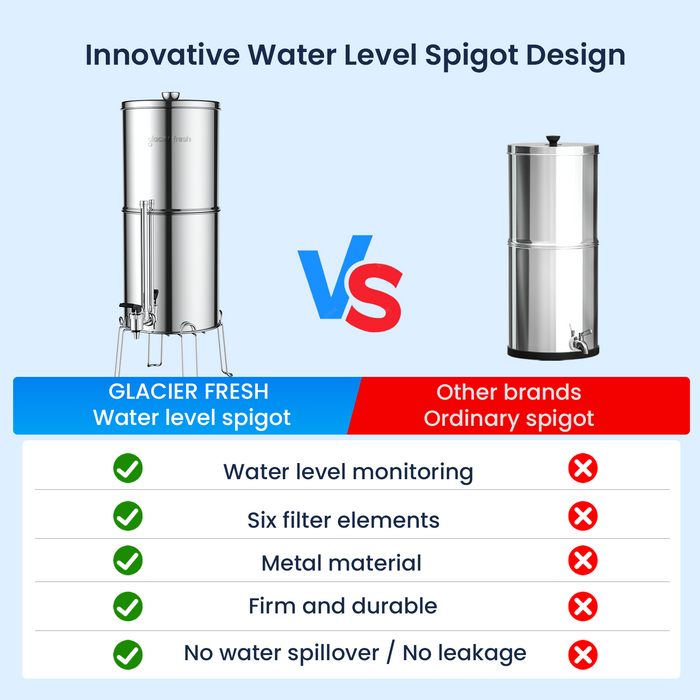Gravity water filtration systems are an innovative solution for providing clean and safe drinking water. These systems use the force of gravity to filter out impurities and contaminants, ensuring that the water you consume is of the highest quality. In this article, we will explore the inner workings of gravity water filtration systems and shed light on their effectiveness.
How Does a Gravity Water Filtration System Work?
A gravity water filtration system consists of multiple stages that work together to purify water. The first stage typically involves a pre-filter that removes larger particles such as sediment and debris. This pre-filter helps to prolong the lifespan of the main filtration media and ensures optimal performance.
The next stage is the main filtration media, which is usually a combination of activated carbon and ceramic filters. Activated carbon is highly effective in removing chlorine, volatile organic compounds (VOCs), and other chemicals that can affect the taste and odor of water. Ceramic filters, on the other hand, are excellent at trapping bacteria, protozoa, and other microorganisms.
As water passes through the filtration media, impurities and contaminants are trapped, leaving behind clean and purified water. The force of gravity allows the water to flow through the filters at a controlled rate, ensuring thorough filtration.
Advantages of Gravity Water Filtration Systems
Gravity water filtration systems offer several advantages over other types of water filters. Firstly, they do not require electricity or any external power source to operate. This makes them ideal for use in areas with limited access to electricity or during emergencies when power outages occur.
Additionally, gravity water filtration systems are portable and easy to use. They are often designed with a compact and lightweight structure, making them suitable for camping trips, outdoor activities, or even for everyday use in households. Their simplicity also means that maintenance and filter replacement are straightforward tasks.
Furthermore, gravity water filtration systems are cost-effective in the long run. While the initial investment may be higher compared to other filtration methods, the absence of electricity requirements and the longevity of the filters make them a more economical choice over time.
Understanding the Importance of Clean Water
Access to clean and safe drinking water is essential for maintaining good health. Contaminated water can lead to various waterborne diseases, such as diarrhea, cholera, and typhoid. According to the World Health Organization, around 2 billion people worldwide do not have access to clean drinking water sources.
Gravity water filtration systems play a crucial role in addressing this issue by providing an affordable and reliable method of purifying water. They are particularly beneficial in areas where access to clean water is limited or unreliable.
Conclusion
Gravity water filtration systems are a remarkable innovation that combines simplicity, effectiveness, and portability. By utilizing the force of gravity, these systems can provide clean and safe drinking water without the need for electricity or complex machinery.
Understanding gravity water filtration systems and how they work is essential for making informed decisions about water purification. Whether you are an outdoor enthusiast, a traveler, or simply concerned about the quality of your tap water, a gravity water filtration system can be a valuable investment.
For more information on gravity water filtration systems and their benefits, you can visit the following credible sources:

